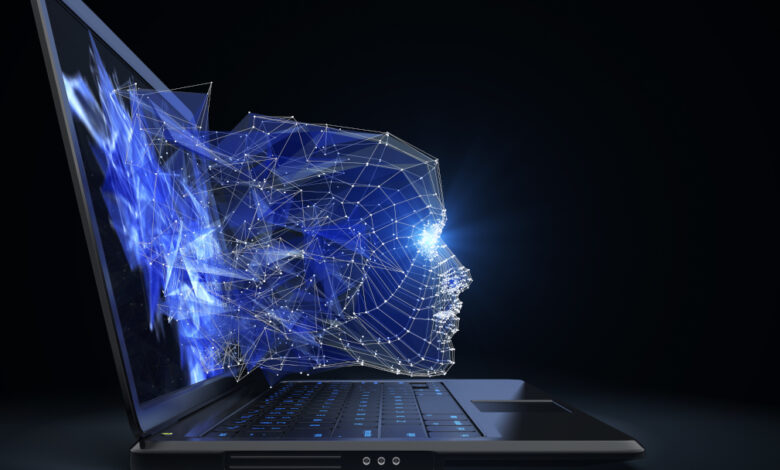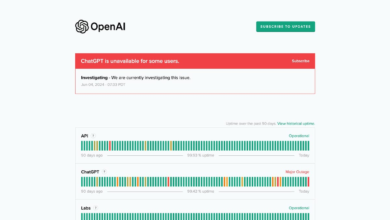Generative AI reshapes legal profession from top to bottom – South Carolina Lawyers Weekly

AT A GLANCE
- An example of how generative AI (GAI) is changing the practice of law is the technology enables lawyers and paralegals to sift through thousands of case documents quickly, saving significant time and improving overall productivity.
- Legal professionals must understand how GAI works to ensure they provide quality services and comply with professional ethical obligations.
- Ethical considerations, such as confidentiality and competency, remain crucial as lawyers and paralegals adapt to using GAI for legal tasks and client services.
Business analysts, professional organizations and thought leaders have long predicted that automation would disrupt the legal profession from lawyers to paralegals.
While technology has brought about the predicted changes, professionals also have adapted, but the use of generative artificial intelligence, commonly known as GAI, might be a game changer.
Artificial intelligence has been part of the technology landscape for years. Chatbots help lawyers and staffers do routine tasks, and some are using AI language tools to sift through thousands of case documents in minutes. Time will tell when it comes to performing substantive tasks.
Mary Harriet Moore, an associate in the Charleston law firm of Rosen & Hagood, is learning firsthand the power of GAI when it comes to saving hours and creating efficiencies.
“Westlaw has come out with its AI-assisted research, so that might be an avenue that I would explore in the future,” she said. “But right now, I primarily use it for my document review, when I have a case that has thousands of documents associated with it.”
Using a process such as a Boolean search, Moore uploads all her documents into the software, enters a document review protocol and search terms, and commands the software to sift through the papers for the search terms. The program also can eliminate duplicate documents to avoid repetition and summarize thousands of documents.
She could not begin to estimate the amount of time it would take to do that by hand.
“If you were just to click through your documents and mark them manually, I don’t even want to know how long that would take,” she said.
At Ward and Smith, a law firm with offices across North Carolina, intellectual property and privacy attorney Angela Doughty has been dealing with issues associated with artificial intelligence for years.
Traditional artificial intelligence has long been used to aggregate and make predictions based on existing data, the way a social media site suggests retail purchases or news articles based on a user’s past purchases and preferences. But it doesn’t create anything new.
On the other hand, generative AI can be thought of as a machine-learning model that is trained to create content, from text to images to audio to video, based on keywords or instructions a user puts in.
Doughty said while most people use traditional AI, often without even realizing it, GAI has brought the issue to the forefront for everybody.
“Generative AI is implementing the creative component of human intelligence that we haven’t historically seen before,” she said. “Unlike a human who must actually experience an event or occurrence or talk to somebody who has experienced it in order to describe it, GAI can quickly tap into vast reserves of information about that particular experience and create a narrative that a human would never be able to do as fast.”
While GAI can save attorneys and their staff members many hours, the technology’s current generation is riddled with potholes. Attorneys must have a basic understanding of how GAI works to ensure they are providing quality legal services and complying with professional ethical obligations. Even when using GAI, attorneys are responsible for the work they deliver, Doughty said.
Solutions for routine tasks
At Ward and Smith, no one uses any form of GAI that could tap into client information, but Doughty said, ChatGPT has become a go-to tool for doing administrative chores such as composing email messages, writing blogs or creating presentations.
“For presentations, I’ll put in what the topic is, the presentation’s length, a description of our audience, and sometimes I ask it to give me images,” she said. “Using it in this way saves me a substantial amount of time on tasks not client-related.”
While some lawyers and law firms are still trying to decide how to approach using GAI, studies indicate the software tools are here to stay and will become more widespread across the profession.
A 2024 study by market research firm Global Industry Analysts concluded that the AI legal software market could grow from $1.3 billion in 2022 to upward of $8.7 billion by 2030. Wolters Kluwer, a global provider of professional information, software solutions and services, also surveyed 700 lawyers in the United States and Europe in 2023 and found that 73% of them expect to integrate generative AI into their legal work in the next 12 months.
But it pays to be cautious.
In January, the North Carolina State Bar Council issued six opinions on ways law firms can use AI, ranging from client representation to third-party vendors to ethics around billing and attorneys’ professional responsibility for their work product.
Brian Oten, director for ethics and special programs at the N.C. State Bar, said he is cautiously optimistic. He reports that the State Bar has no interest in prohibiting the use of AI and instead believes the technology could provide opportunities for law firms to improve legal services for clients. But lawyers and their staff must use it responsibly.
“The State Bar’s perspective comes with a warning that ultimately if you’re going to use new technology, you should know what it does,” he said. “You should know the benefits and the risks, how it operates, how it stores any confidential client information you put in, and the terms of a service agreement that you might have with a third-party developer.”
Some firms are skirting third-party issues by creating artificial intelligence products for their exclusive use, and even for use in particular practice areas, he added.
“In general, the use of AI is not discouraged, but lawyers remain responsible for keeping client information secure and must comply with their obligation to ensure any client information will not be inadvertently disclosed or accessed by unauthorized individuals,” Oten said.
Representatives from the South Carolina Bar did not respond to a request for information about their position on the use of AI at law firms. But in the regular “Ethics Watch” column in the March issue of its publication South Carolina Lawyer, authors Nathan Crystal, a retired professor at the University of South Carolina School of Law, and attorney Francesca Giannoni-Crystal, advise lawyers to adhere to two existing ethical duties when using generative AI — competency and confidentiality.
Start slowly
As a professor and executive director of the Technology Law and Policy Center at North Carolina Central University, attorney Diane Littlejohn deals with emerging tech issues applied to the practice of law.
She advises taking a limited approach to using generative AI and in many cases, chatbot programs such as ChatGPT.
“Chatbots are great for drafting letters, emails and marketing messages, and they can perform limited document management, but I would advise most attorneys or paralegals to not use chatbots for anything other than these tasks,” she said. “I’m sure you’ve heard about attorneys doing research with chatbots and coming up with cases that don’t exist. “
She advises attorneys to use proven research tools and trusted brands in the marketplace such as LexisNexis and Westlaw, which are producing their own GAI systems; but she cautions that even those trusted brands merit testing and thorough vetting before putting them to use at a law practice.
Oten recalled a situation involving a lawyer who tried using a GAI tool to generate research for a case. It pulled the wrong information and incorrect facts. The lawyer, sensing something was wrong, did his own fact-checking and discovered egregious errors.
“The lawyer decided to actually read the case in question and saw that the court’s holding was actually the opposite of what the GAI tool had pulled,” Oten said. “Had the lawyer not taken a proactive approach to learn for himself what the case was about rather than relying blindly on GAI, he would have provided an inaccurate description of the holding of that case to the court.”
Jeff Kelly, a partner at Nelson Mullins in Raleigh grew up with technology. He said he came of age in the dot.com bubble and has seen many technology life cycles.
Kelly focuses his practice on areas of emerging technology, particularly in those involving data analytics, digital assets and financial technology.
“Technology is constantly evolving, and often we see drawbacks to using it and question its value,” he said. “But that ship has sailed, and now, rather than worry about the things we can’t change, we must make sure we are putting in good guiding principles from a legal and policy perspective to get the benefit of innovation and mitigate or avoid some of the negatives.”
He advises attorneys, paralegals and support staffers to start learning how to use the tools through experimentation.
“The time to find appropriate uses for them is now, while they’re still relatively nascent because as they mature, it will be imperative to understand their power so you can reap the biggest benefits,” he said.
Clients run the gamut, too, in terms of their comfort level with AI, Kelly said.
“When considering your use of artificial intelligence, talk to your clients,” he said. “Many of them are fully supportive because they want you to use the tools that will get them better answers and save time and cost, but others don’t like it at all, so you want to be sensitive to the particular needs of your clients.”
GAI and job security
Some people worry that GAI will take jobs, while others believe the technology will help not only attorneys but paralegals and support staffers perform more efficiently in their respective roles.
Doughty acknowledges that while some job functions are bound to disappear, staff members performing them can have opportunities to perform at a higher level. She points to the old word processing model.
“I can tell you that at my firm, we still have a large number of people that used to be in word processing but now work in billing or filing or administration, and I don’t see this technology taking anybody’s job,” she said. “I see it as just another tool, and I would never trust artificial intelligence the way I would trust my paralegal.”
Oten agreed, adding that paralegals will perform many administrative functions using AI and will have the same ethical responsibility as attorneys. They also might serve as backstops to spot inaccuracies.
“For example, a paralegal might use GAI for research, review the results they get, and ask themselves and the attorney if anything looks out of place,” he said. “Or maybe they cite a case and discover something there they had never heard of before because the artificial intelligence described the case incorrectly or provided the wrong analysis.”
He encourages paralegals and lawyers to follow their gut instincts, do their work thoroughly, carefully review the work product of artificial intelligence, and do what they would normally do to satisfy themselves that it is something they can put their name on and take responsibility for.
Oten added that in the end, clients will benefit from using the artificial intelligence tools that make law firms more efficient.
“For some clients, their legal work will cost less,” he said. “Others might pay the same fee but receive legal services and work product that are more thorough and in-depth.”
Kelly believes GAI will continue to modernize the legal profession and attract more younger attorneys like himself, who grew up with technology.
“With technology comes new professionals that have wild and exciting ideas about how generative AI will shape their trajectory as professionals,” he said. “For a profession that’s known for being steady and traditional, this is a great opportunity to consider innovative ways to deliver services.”



